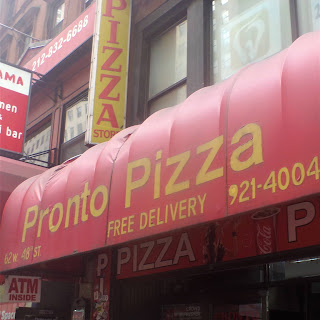When I was growing up, it is always seemed unfair to
me that the only house on the block with a sizeable green lawn—a lot in and of
itself—went unused by its inhabitants. Utterly! The family who lived there were
brainiacs—father, mother, daughter, and son—whose intellectual pursuits,
livelihoods, and hobbies didn’t include gardening, barbecuing, or playing Wiffle
ball. From my youthful perspective—and adult one, too—this rare residential green
space in the neighborhood merited a better fate.
The house in question was for sale in 1946 when my
paternal grandfather—an iceman until refrigeration downsized him to a milk
factory line worker—shopped in the area for a piece of real estate to call his own.
He loved the property because of the lawn, which he saw as prime garden
space. But, alas, my grandfather required a home with a rent-paying tenant or two
to assist with the mortgage. Relatively speaking, houses were affordable in
those days for lower middle-class families, but not affordable enough to go it
alone. And so, my grandfather had to pass on the house with the enviable lawn
and settle for a three-family dwelling with a concrete backyard down the block.
Fortunately, in those days, empty lots existed in the Bronx’s Kingsbridge and
my grandfather planted considerable gardens in a couple of them.

My first paying job, as a matter of fact, found me
cutting that coveted lawn with a primitive electric mower. Powered via an
extensive cord, we mowers dragged it up and down and then down and up the lawn.
My friend Johnny accidentally ran over the thing during a mowing. Embarrassed and
concerned of the consequences, he neglected to inform his employer of the
incident. Quietly returned to the garage, the mower with the gnarled cord eventually
was discovered and a lecture ensued. “Johnny, you done me dirt last week,” said
the aggrieved party as he pointed to exhibit A. He then proceeded to explain
how important it was to own up to one’s mistakes. Given a second chance, Johnny
also learned a valuable life lesson in the process.
In my nearly six decades of living, the lawn has remained
a reassuring albeit somewhat lonely constant. No wafting aromas of grilled hot dogs and
hamburgers ever originated from it. No fun and games were ever recorded there. No
tomato plants sprouted up from its earth. A fence on its north side has long sported
grape vines that—surprisingly—annually yield grapes, which we kids sampled once
upon a time. If memory serves, they were better suited for the local bird
population. Gracing the lawn for years were also several small cherry and pear
trees, which clearly were there before the brainiacs assumed ownership of the
property. They reliably bore fruit that were, again, humanly edible but only
barely. The cherries were invariably sour, and the pears were always hard and more
suitable for baking—if even that. Still, as wide-eyed youths, we enjoyed
picking grapes, cherries, and pears—and eating them. Sometimes we snuck into
the yard and made off with our bounty. As far as we could tell, the owners
never harvested the fruits of their lawn.

One day, as I recall, my friend Johnny and I rang the front
doorbell. The youngest son—who would have been in his twenties then—answered. We
politely asked him for permission to “pick some pears.” He said that we could
but added rather robotically, “You have five minutes!” And, lo and behold, the
man with the off-the-charts IQ timed us to the second and came charging out of
the house loudly bellowing: “Your time is up! Your time is up! Your time is up!”
Fast forward a half a century and the youngest son—now
a septuagenarian—is the last one standing in the house with the super green
lawn. In fact, it’s greener than ever. New sod was recently laid, and a
sprinkler waters it daily. Through the years, the pear trees died of natural
causes. The last remaining cherry tree and a miscellaneous tree were cut down a
few years ago, leaving just the forlorn lawn.
Well. everything must end in this thing we call life. The
news is out that the Bronx house with the ample lawn alongside it is up for sale. The
last of the brainiacs is moving on to greener pastures, or less greener
pastures, as it were. And considering the present climate in New York City, I
suspect whoever buys the property will not regard the green lawn in the same
detached way, nor in the way I’ve looked at it for all these years. Bet your
bottom dollar that the green lawn will be seen exclusively through a green
lens, and something bigger than a lawn in the Bronx will be lost because of
it.
(Photos from the personal collection of Nicholas
Nigro)























